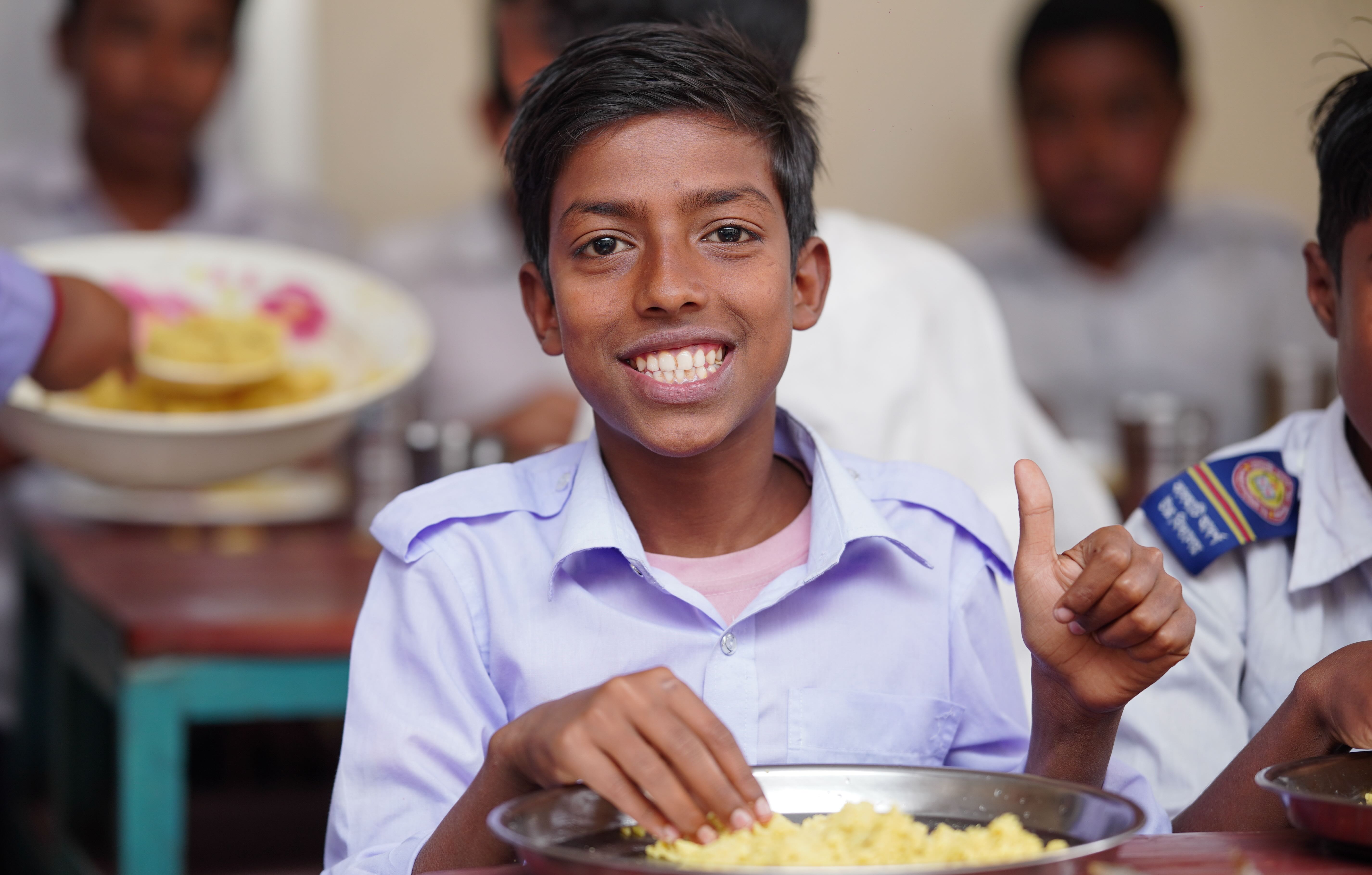In the quiet riverine village of Khedabagh, nestled within Lalmonirhat Sadar in northern Bangladesh, every morning begins with the sound of boats on the Teesta River and the determined footsteps of a young boy named Minhajul Islam Bappi, making a difference in the lives of young girls and boys in his village.
Only a few years ago, Minhajul was like many other youths in his community—aware of the struggles around him, but unsure of how to bring real change. That changed in 2023 when he joined the Bangladesh Youth Parliament and attended a three-day leadership training on food systems, supported by GAIN Bangladesh in Boda Upazila of Panchagarh District in Rangpur Division, Bangladesh.
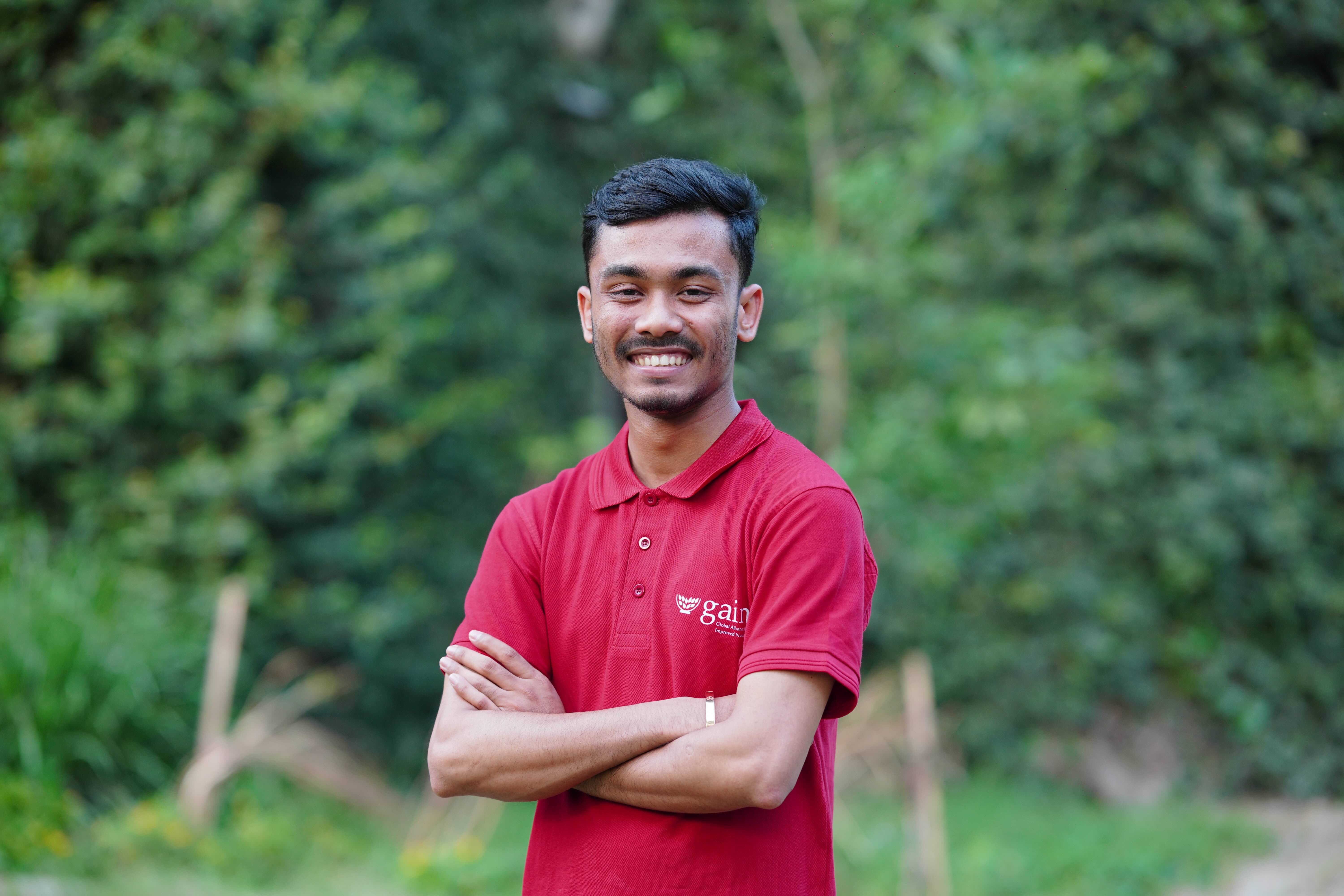
“The training was an eye-opener. I learned so much about the importance of proper nutrition and how local actions can create big changes. It made me realise that true leadership isn't just about big ideas, but about identifying and solving the problems right in front of you, in your own community.
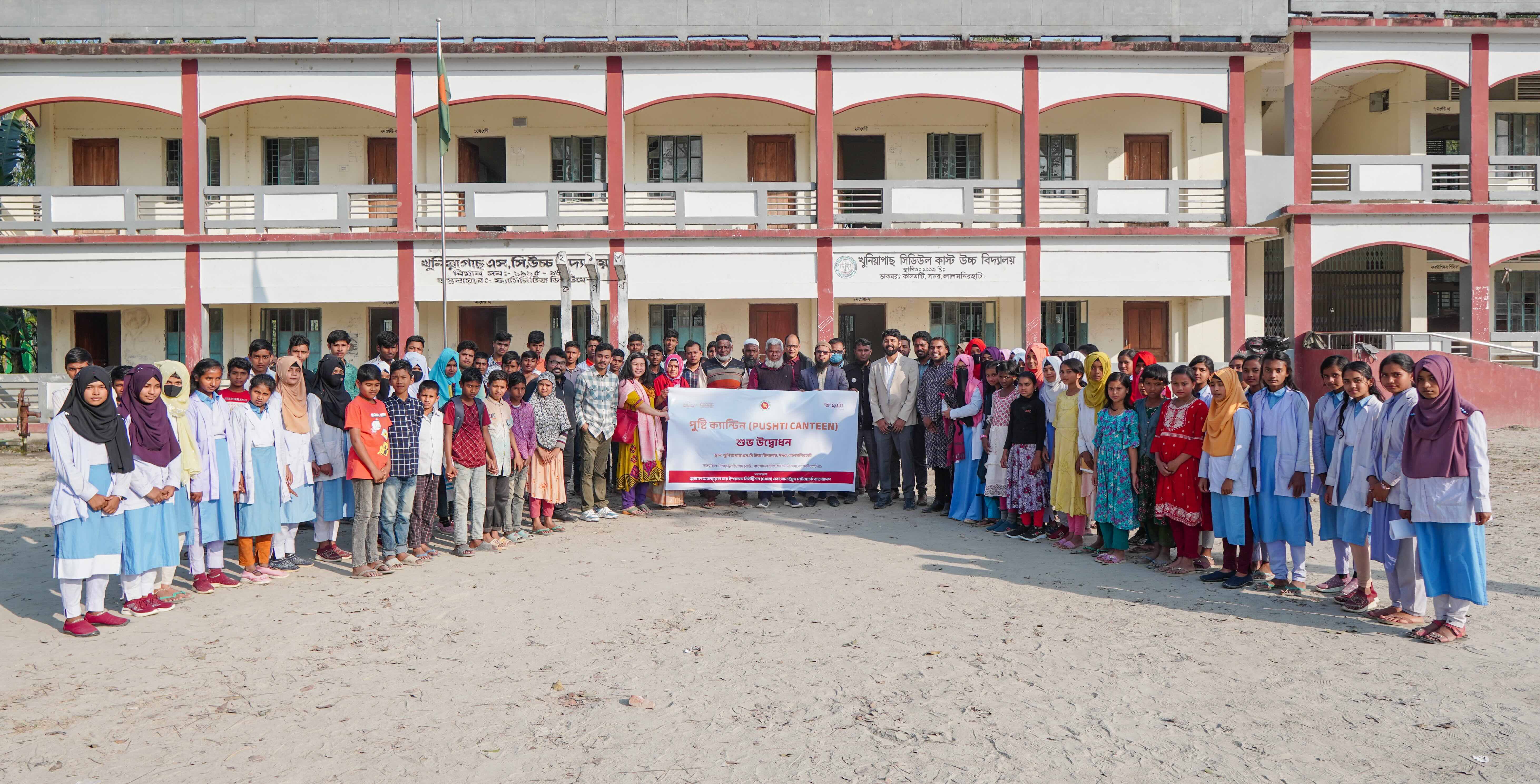
With the knowledge gained from the Food Systems Youth Leadership Training, Minhajul returned home to observe the students in his village with a new perspective. He was able to see the problem very clearly now - - lack of proper nutrition among students. From high schools to madrasas, students would fill their meal breaks with deep-fried snacks from roadside vendors—spicy puffed rice, oily fritters, and samosas. These foods were low-cost and easy to find but bad for health, often leading to young children falling sick and skipping school.
“I went to different schools and really paid attention during lunch breaks. We’d just learned about balanced diets and the impact of malnutrition, and here, almost every student was eating cheap, oily snacks. I realised this wasn't just a preference; it was a serious nutritional gap affecting their health and studies.”
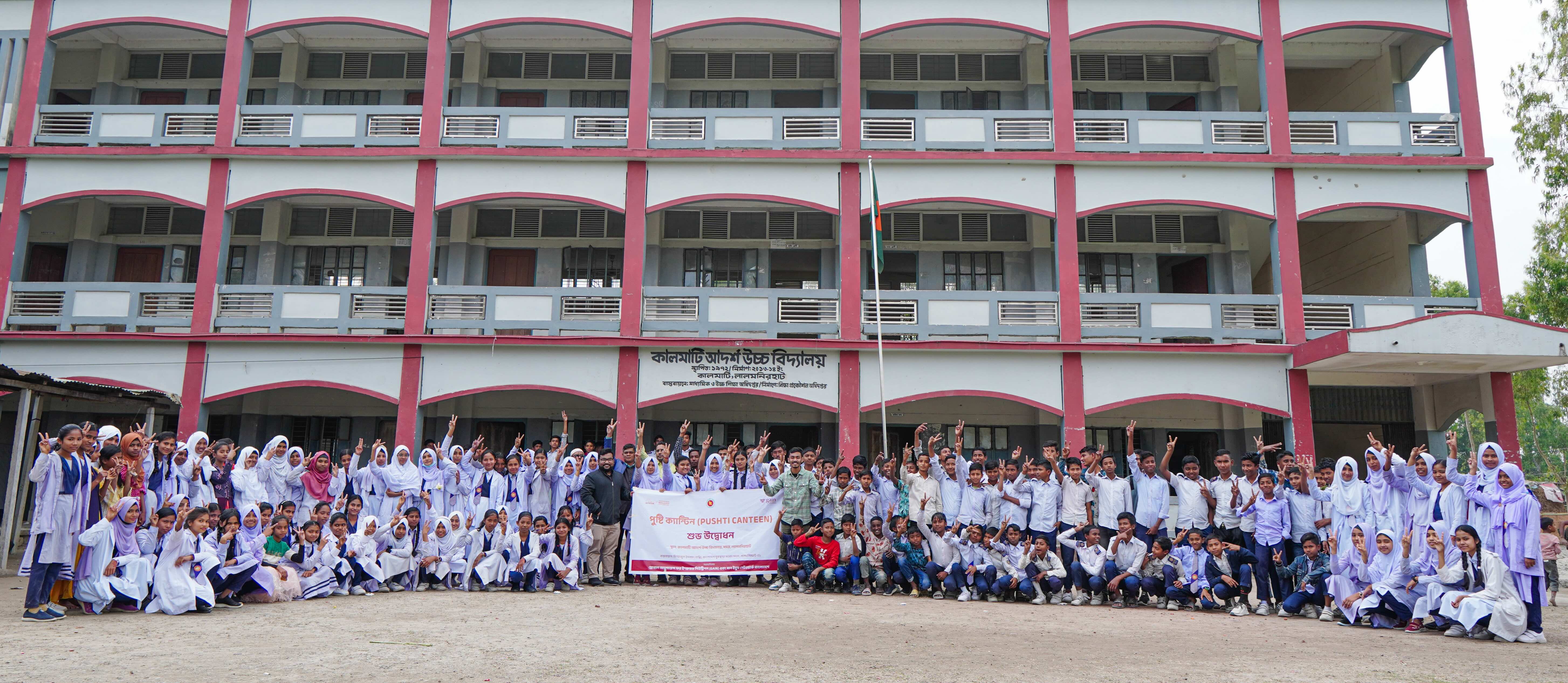
Determined to do something, Minhajul launched a heartfelt initiative: “Nutritious Khichuri for 10 Taka (approx. 8 cents)
He started small, introducing the project at Teesta Khalilur Rahman Khadem High School. With only 10 Taka, students could enjoy a plate of homemade khichuri—nutritious rice cooked with lentils and vegetables. A dedicated person was appointed to prepare the meals, giving that person a steady income and a new sense of purpose.
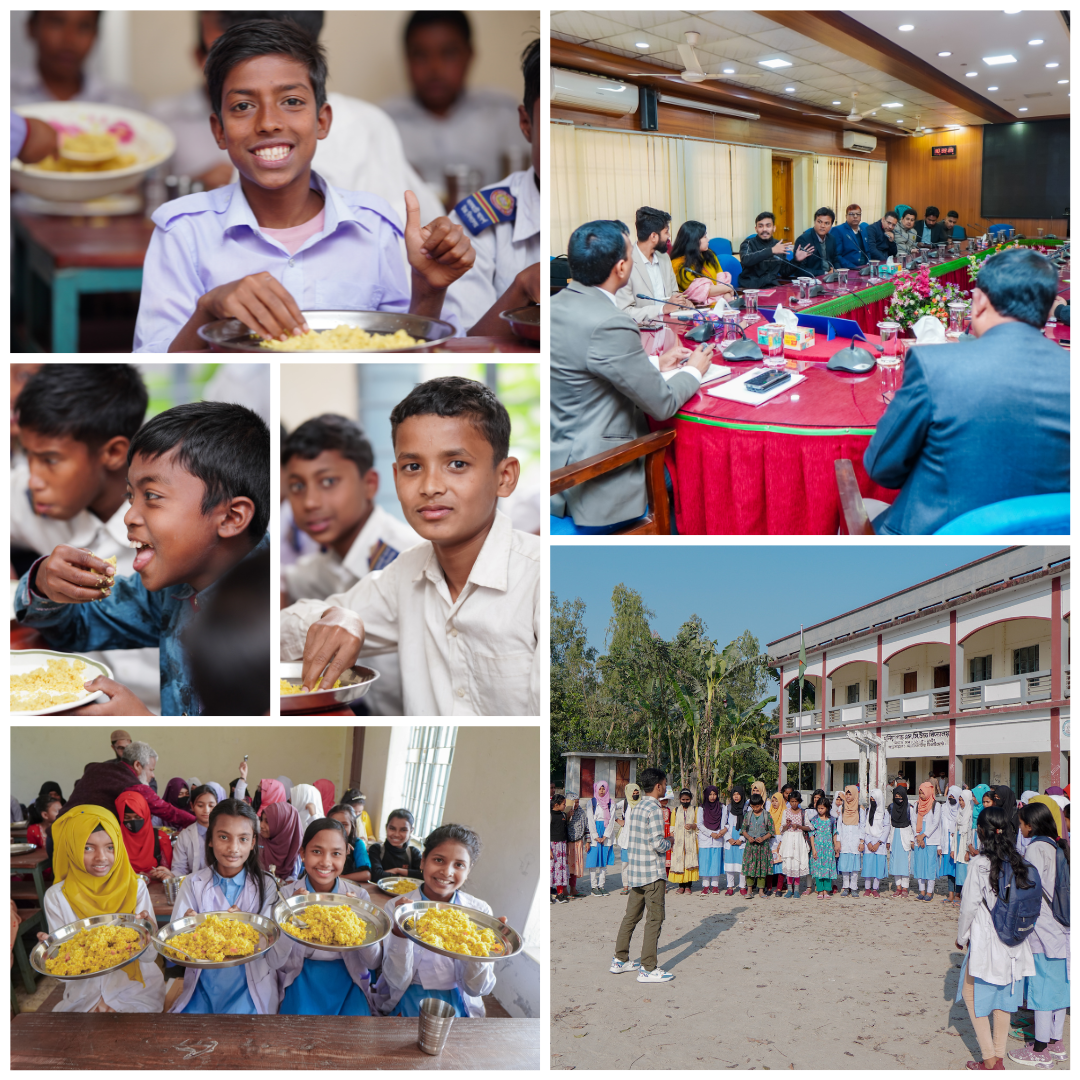
“It's incredible to see the difference. Students are more energetic in class, and teachers tell me attendance has improved. Knowing that a simple, nutritious meal for just 10 Taka can help thousands of students learn better and stay healthy – that’s the most rewarding part.”
Encouraged by the results, Minhajul expanded the initiative to three more schools: Kalmati Adarsha High School, Khuniagachh SC High School, and Horin Chawra High School. Today, over 3,000 students and teachers benefit from this effort every school day—with support from GAIN and the continued drive of one young boy who chose to act.
But Minhajul’s mission didn’t end there. Through GAIN’s Training of Trainers (ToT), he brought 30 more youth leaders in the journey through community level training and launched three more community-based projects in Lalmonirhat:
1. Maternal Nutrition and Health Services – ensuring mothers receive care and information they need.
2. Nutrition Clubs and Awareness – empowering youth to become health ambassadors in their own villages.
3. Nutrition Gardens – promoting sustainable, local food sources for better family meals.
From a small riverbank village to hundreds of classrooms and homes, Minhajul’s journey proves that big change often begins with a single plate of food—and a heart full of purpose.
Ayesha Khanom, a teacher shared, "Before, students often felt sleepy in the afternoon classes. Now, with the Khichuri, they feel much more energetic and can concentrate better on studies. The khichuri is tasty, and it only costs 10 Taka!"
Shakib Hasan Simanto (Class 09) from Teesta Khalilur Rahman Khadem High School shared,"Earlier, I had to attend afternoon classes on an empty stomach. I often had headaches due to hunger, and nothing felt good. Now I can have khichuri at school for just 10 Taka. The food is not only delicious but also very healthy for me. I am able to concentrate better in class now. This project is a blessing for students like me from low-income families."
